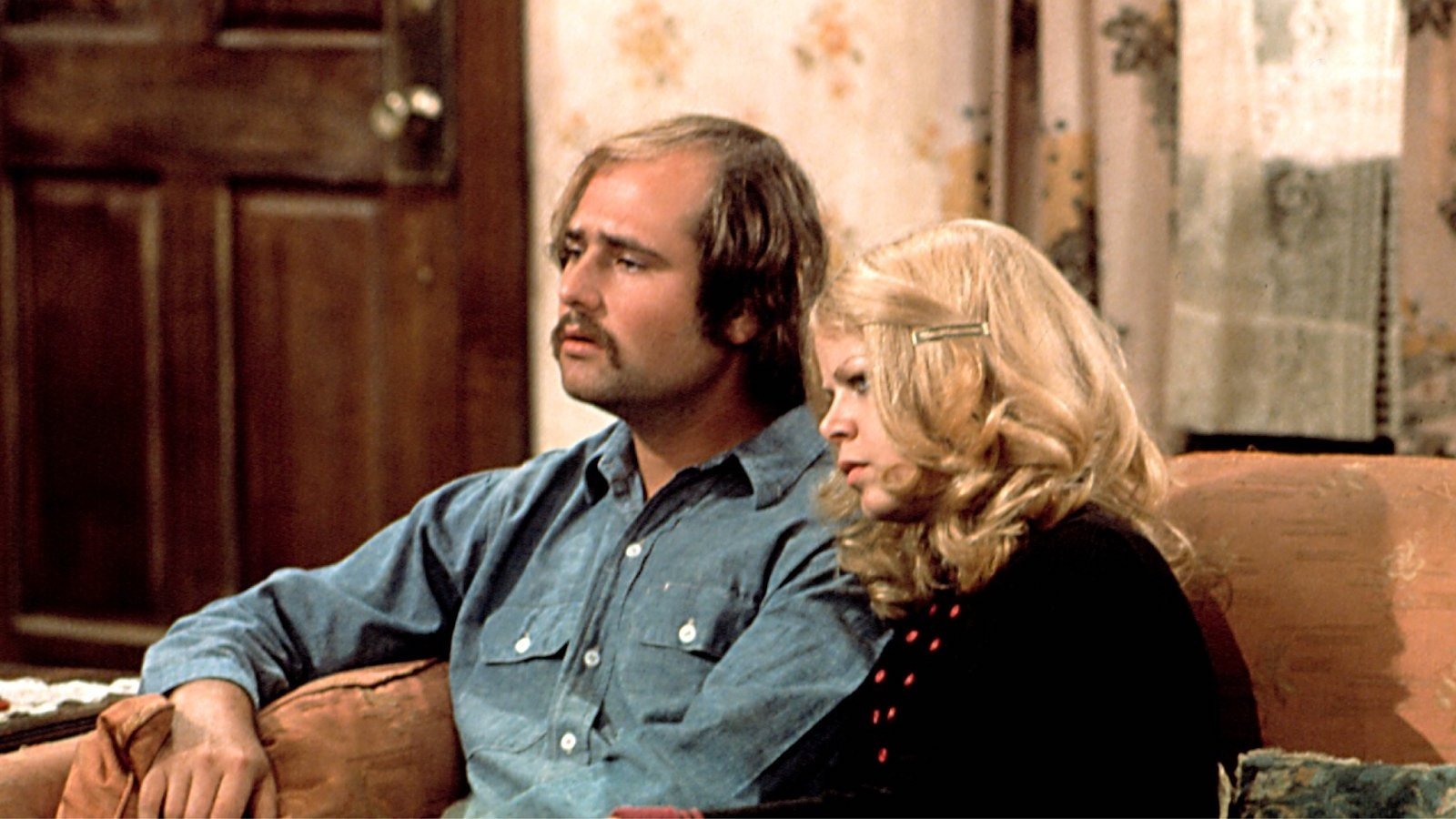
Mike’s New Job Offers More Than Just a Paycheck—It Changes Everything
In the world of All in the Family, change rarely arrived without a clash—and in the episode “Mike’s New Job,” it felt like the world shifted under the Bunker household. This wasn’t just a turning point for Mike Stivic—it was a seismic moment that redefined family roles, challenged personal identity, and set the course for a future none of them were quite ready for.
What might seem like a simple professional milestone becomes a symbolic journey of ambition, independence, and generational conflict. And like everything in this show, it’s messy, emotional, and deeply human.
A Job That Means More Than Money
When Mike (played by Rob Reiner) announces he’s landed a teaching position at a local college, it seems like the culmination of all his idealistic, progressive dreams. For a man often locked in debates with Archie over politics, class, and values, this new job is more than career progress—it’s a chance to stand on his own feet.
But independence isn’t just about income. For Mike and Gloria, it means the potential to leave the Bunker home and finally start a life of their own. Away from Archie’s constant criticisms, the couple begins to imagine a future defined by freedom rather than friction. The tension between staying put and stepping out becomes the emotional fuel of the episode—and Mike is suddenly faced with a decision that forces everyone to confront what “home” really means.
Archie’s Reaction: Pride or Panic?
To no one’s surprise, Archie Bunker has a complicated response. On the surface, he’s thrilled—finally, his “Meathead” son-in-law will stop living off his roof and his wallet. But peel back the layers, and Archie’s usual bravado masks something deeper: fear of abandonment and loss of control.
Gloria is his daughter, and as much as he blusters and barks, Archie loves having her close. Mike leaving means Gloria goes too, and for a man so set in his ways, that kind of shift hits hard. Archie’s pride as the patriarch begins to crumble under the weight of a future he didn’t plan for—a quieter house, an emptier dinner table, and the creeping realization that life is moving forward without his permission.
His inner turmoil is never explicitly said, but it seeps through every sarcastic remark and awkward silence. In Archie’s world, independence feels like rejection—and that makes this moment all the more powerful.
Gloria’s Role in the Transition
Gloria (Sally Struthers), as always, finds herself pulled in two directions. Her support for Mike’s ambitions is unwavering—she believes in his dreams and wants to grow with him. But leaving her childhood home, and her emotionally volatile father, is no easy feat.
Her love for both men creates a tension that’s painfully relatable. Gloria isn’t just packing boxes—she’s facing guilt, anxiety, and a longing to stay connected to where she came from. Her journey represents the emotional burden so many women face: being the emotional glue in a family while quietly carrying the cost of progress.
Her struggle isn’t just background drama—it’s the heart of the story. As Gloria navigates this transition, the audience is reminded that change, even when chosen, comes with a price.
A Message That Still Matters
At its core, the episode “Mike’s New Job” goes far beyond the surface narrative of a man stepping into a new career. It’s about a transformative, universal moment—the kind that quietly rearranges the dynamics of a family. It explores what happens when someone dares to evolve beyond the role they’ve always played, even when that evolution creates distance, discomfort, or heartbreak. Growth, in this case, isn’t just an individual achievement—it’s a ripple effect that touches everyone in the household.

For Mike, the new job is a milestone that symbolizes progress and independence. But the emotional terrain he must cross to claim it is far more complicated. His choice to move forward forces the family to confront the reality that people don’t stay in place forever. Children grow up. Relationships shift. And dreams eventually demand to be lived out, even if it means disrupting the old, familiar patterns that once felt unshakeable.
The emotional tension in the episode isn’t loud or explosive—it’s subtle, deeply felt, and achingly real. As Mike and Gloria prepare to take their next step, they aren’t just moving out of a home—they’re stepping out of a narrative that once defined them. In doing so, they create emotional space for everyone, including Archie, to question what happens when love, loyalty, and tradition collide with progress and change.
All in the Family doesn’t present this shift with sugary optimism or neat resolutions. Instead, it leans into the messiness of family life—the awkward silences, the unspoken fears, the pride disguised as anger, and the longing hidden behind sarcasm. It allows discomfort to sit in the room like an extra character, revealing the truth that real transformation is never tidy. It’s in those uncomfortable moments that characters—and viewers—come face to face with what growth really costs.
In a time when most sitcoms thrived on predictability and punchlines, All in the Family dared to disrupt the norm. It held up a mirror to the raw, sometimes painful transitions that define us all. It reminded audiences that comedy can still be honest, that change can still hurt even when it’s necessary, and that growing up—whether you’re twenty-five or sixty-five—rarely comes without emotional weight.
And that’s why “Mike’s New Job” still resonates. It doesn’t just tell a story—it taps into a feeling: the bittersweet realization that moving on is essential, even when it’s hard. It’s a timeless portrait of how families evolve, fracture, and find new ways to love each other through the growing pains.
Conclusion: A Turning Point That Still Resonates
“Mike’s New Job” stands out as one of the most emotionally charged and relevant episodes of All in the Family. Through humor, sharp writing, and raw performances, it captures that bittersweet truth every family faces at some point: the people we love will grow, and sometimes they’ll grow away from us.
The Bunkers didn’t have easy answers—just like real families don’t. But in watching them wrestle with transition, audiences saw themselves. That’s why decades later, the episode still resonates. It’s not just about a job—it’s about what we lose, gain, and become when life forces us to change.
